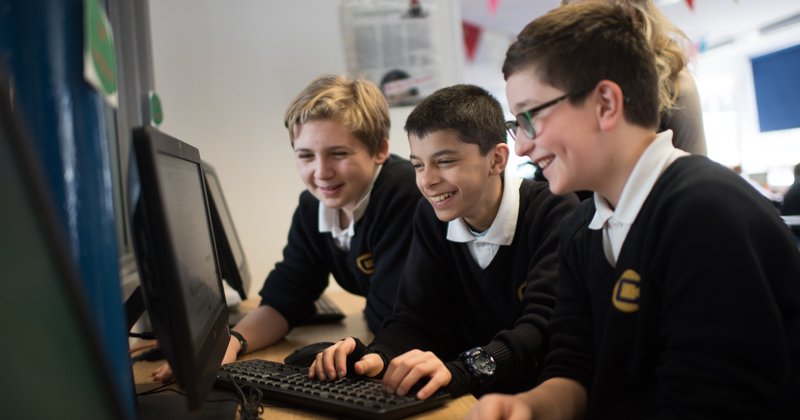Listen to the article
Only 2% of UK children possess the critical literacy skills needed to distinguish between real and fake news, according to a comprehensive report released by the Commission on Fake News and the Teaching of Critical Literacy Skills in Schools.
The alarming findings, published on June 13, 2018, highlight significant concerns about young people’s ability to navigate today’s complex media landscape. Nearly two-thirds of teachers surveyed believe fake news is actively harming children’s well-being by increasing anxiety levels, damaging self-esteem, and distorting their understanding of the world.
As digital natives, today’s youth are consuming information from an unprecedented variety of sources. The commission discovered that almost half of older children now get their news primarily from websites and social media platforms. However, only a quarter of these children actually trust these online sources, indicating a growing skepticism about digital information.
The education system appears to be falling short in addressing these challenges. Half of the teachers surveyed expressed concern that the national curriculum fails to equip students with the necessary literacy skills to identify misinformation. Furthermore, a third of teachers believe that critical literacy skills currently taught in schools don’t effectively transfer to real-world situations.
“Children and young people today are growing up in a globalized world and are processing information from a wider variety of sources than ever before,” the report states. “They need the critical literacy skills to navigate the potential pitfalls when consuming news, particularly when using online sources and social media.”
The Commission on Fake News was launched on September 13, 2017, as a joint initiative between the All-Party Parliamentary Group on Literacy and the National Literacy Trust. Working in partnership with Facebook, First News, and The Day, the commission spent a year gathering evidence on how misinformation affects young people and what skills they need to identify it.
To collect data, the National Literacy Trust conducted extensive surveys among primary and secondary school pupils in autumn 2017. These surveys assessed children’s awareness of fake news and measured their ability to identify it. A separate survey targeted teachers to understand where critical literacy skills are currently taught, what additional support educators need, and how fake news impacts classroom environments.
The findings come at a crucial time when digital literacy has become essential for participation in modern society. The spread of misinformation online has accelerated in recent years, creating significant challenges for educators, parents, and policymakers.
In response to these findings, the National Literacy Trust has developed free teaching resources for both primary and secondary schools. These materials include lesson plans, case studies, discussion cards, printable posters, and other tools designed to help educators address fake news in the classroom. Additionally, parents can access guides with tips to help their children develop critical thinking skills when consuming news.
Beyond the classroom, the National Literacy Trust is taking a broader approach through its coordinating role in the News Literacy Network. This initiative aims to empower news consumers of all ages with the confidence, knowledge, and skills needed to engage critically with news and current affairs.
The report’s findings underscore the urgent need for a coordinated response from educators, parents, media organizations, and policymakers to ensure young people develop the critical literacy skills essential for the digital age. As information sources continue to multiply, the ability to distinguish fact from fiction has become not just an academic skill but a fundamental requirement for informed citizenship.
Fact Checker
Verify the accuracy of this article using The Disinformation Commission analysis and real-time sources.




6 Comments
This is a troubling but unsurprising report. With the rapid rise of social media, it’s critical that we prioritize digital literacy education to help young people navigate the complex information landscape. Equipping them with the skills to think critically about online content is key to their well-being and understanding of the world.
This report highlights an important challenge facing today’s youth. With so much information available online, developing the ability to discern truth from fiction is an essential life skill. I hope the commission’s findings spur meaningful action to equip students with the tools they need to navigate the digital landscape.
This report underscores the critical importance of media literacy education. In an era of widespread misinformation, teaching children to think critically about the content they encounter online should be a top priority. Equipping them with the necessary skills is crucial for their intellectual development and well-being.
The finding that only 2% of UK children have the necessary critical literacy skills is deeply concerning. Given the prevalence of misinformation and fake news, this is a serious issue that must be addressed through comprehensive educational reforms. Investing in media literacy programs could make a real difference.
I agree completely. Empowering young people to identify credible sources and fact-check information is vital in the digital age. Proactive steps to strengthen critical thinking skills should be a top priority for policymakers and educators.
The statistics on young people’s trust in online news sources are quite troubling. While it’s encouraging that skepticism is growing, more needs to be done to ensure they have the digital literacy competencies to safely and effectively consume information. This is a complex issue that requires a multifaceted solution.